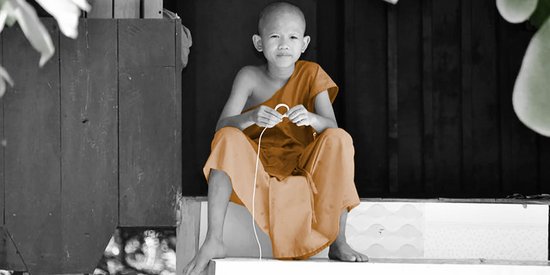Have you ever felt like you've been to a place before, even though it’s the first time you have been there?
To have had the feeling of already knowing someone whom you meet for the first time?
To easily navigate around a place you don't know?
Ever felt you were having the same exact conversation, word for word, with a group of friends?
All these questions to which we don’t have concrete explanations could be memories of past lives.
To find the roots of reincarnation, it is necessary and unavoidable to speak about the soul.
Let's go to ancient Egypt first.
The Egyptians were passionate about death. Their traditions consider death to be a new aspect of life, a new birth to inexhaustible and infinite life. They decided what to take with them in their sarcophagi and practiced the weighing of the soul (synonymous with the heart for them). Osiris was the representative, the Lord of reincarnation.
In ancient Greece, in the 6th century BC, three intellectuals such as Pythagoras, Plato and Aristotle had their vision.
For Pythagoras, countless numbers of souls could be floating in the air.
Plato believed that after a first life, the soul was reincarnated in the body of a woman, and then that of an animal if she had not honored the Gods.
Aristotle said that the soul could not exist without the body. Only the we (the intellectual heart of the soul) is immortal.
In Greek thought, reincarnation is both an inevitability from which to free oneself and a chance for freedom.
Hinduism approaches the soul as a "Self" that changes body in order to achieve true freedom (Nirvana). It is the law of karma that influences its journey from body to body.
Buddhism: "The therapeutic and spiritual goal of Buddhism is to free oneself from the cycle of reincarnation". We also find the ideas of nirvana and karma as well.
During the first centuries BCE, these ideas of reincarnation were also found in the Jewish Kabbalah. This integrates the ideas of good and evil. The souls of the righteous join God after death, those of sinners go to a place of torment. And then, those in between spend a few months in turmoil to get a chance to come back to earth.
Christianity and reincarnation. According to recent statistics, twenty-five percent of baptized people in the West believe in reincarnation. Some of the early Christians believed in it. Then this belief was classified as heretical for political reasons.
Saint Augustine influenced the "church fathers". We find in his Confessions: "Tell me, Lord ... tell me, has my childhood succeeded an age I would have lived, interrupted by a previous death? Was this the one I put in my mother's womb? ... And before this life, O God of my joy, was I somewhere, or in another body? To answer, I cannot find anyone, neither father nor mother, nor the experience of others, nor my own memory."
Jesus said in the Gospel according to John: "Yes, I tell you, it is the truth: no one can see the Kingdom of God unless he is born again".
Some Christians believe that reincarnation is compatible with their faith.
In the Qur'an: "How do you disbelieve in God, seeing you were dead and He gave you life, then He shall make you dead, then He shall give you life, then unto Him you shall be returned?"
Edgar Cayce born in 1877, was considered one of the greatest mystics of the United States. Endowed with the gifts for predictions among others, he affirmed:
"Each of us leads successive lives with the goal of growing spiritually and regaining full awareness of our divine nature.
Thet exclude the transmigration of souls, according into which humans could reincarnate in animal form. In essence, they provide a philosophical framework for the past, emphasizing how to cope with our present existence: we have to live in the present moment, while developing our souls and helping each other."
According to Cayce, the path we have taken has got us to where we are. The essential thing is not who we have been or what we have done before, but how we react to the opportunities and trials that arise now, right here. Indeed, it is the choices we make and our current actions resulting from our free will, that really matter.
Does believing in the theory of reincarnation give the illusion that we are going to save ourselves through our own efforts? Is reincarnation the natural condition for human spiritual evolution? Does reincarnation allow progress of the spirit? Does it have a function of allowing us to mature and one of continuous learning? Creation, the original sin, purgatory, salvation, etc., could they not be renewed through the acceptance of reincarnation? Does reincarnation, like the resurrection, give hope for a better life and for the end, one day, of our sufferings?
The advice from Womensdestiny
Of course, through these questions, everyone can find their own answer. The importance of taking what is right for us for today. We have seen that through the centuries, man has always questioned himself about the notion of the soul and of reincarnation.
As long as we ask ourselves questions, we will open our consciousness to the meaning of life!









